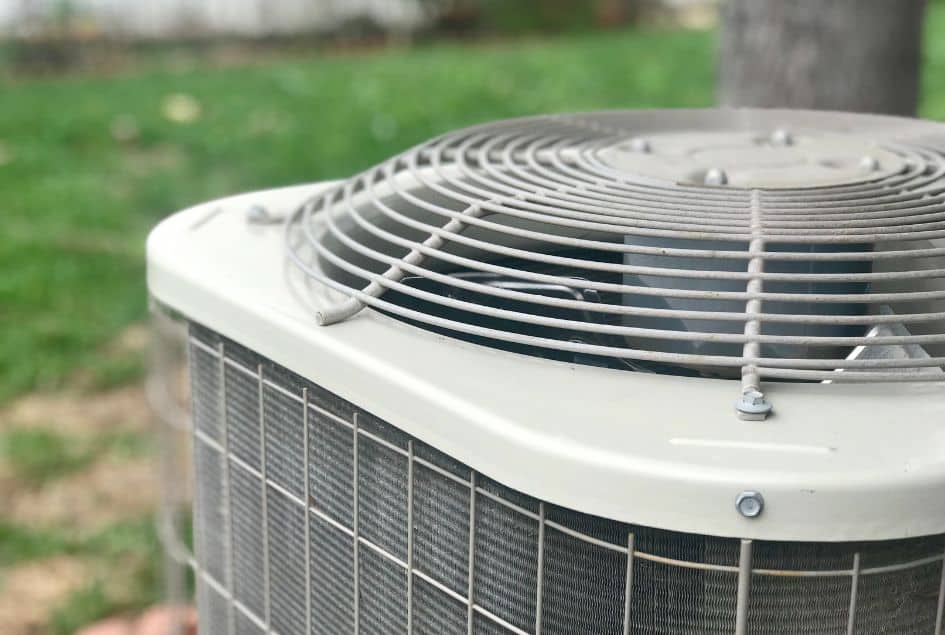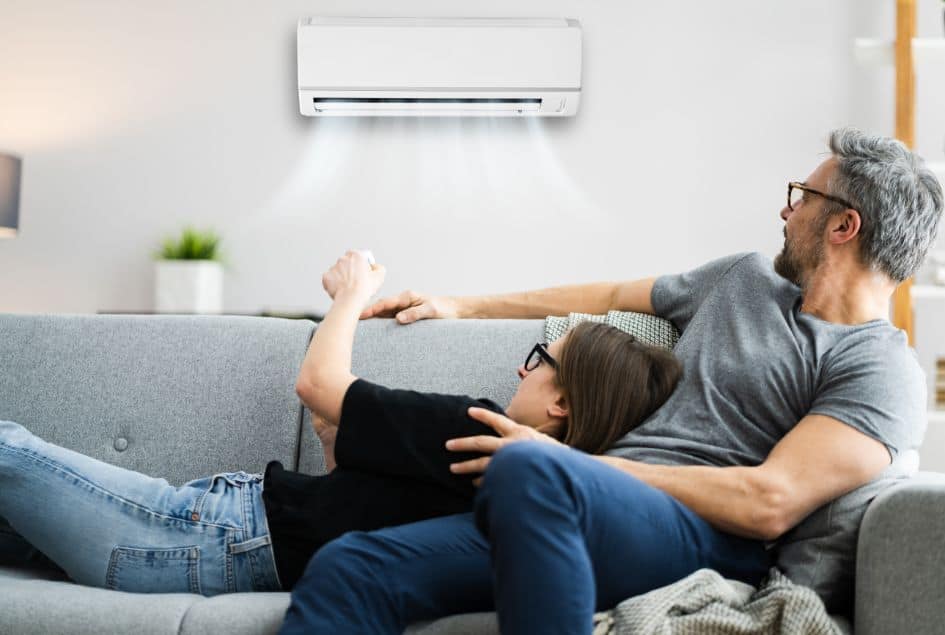Air conditioning units play a crucial role in maintaining a comfortable indoor environment. However, like any mechanical system, they have a limited lifespan and may require replacement at some point. Determining the appropriate time to replace an AC unit is essential to ensure optimal performance, energy efficiency, and cost-effectiveness. This article will provide an overview of the factors to consider when evaluating the need for a new air conditioning system.
Signs Your Air Conditioner Isn’t Working Properly
Maintaining a properly functioning air conditioning system is crucial for ensuring a comfortable living or working environment. When an AC unit starts to malfunction, it can lead to various issues that can negatively impact your indoor climate. Here are some common signs that your air conditioner may not be working correctly:
Unusual Noises from Your AC Unit
If you notice strange noises coming from your air conditioning unit, it could be an indication of a problem. Grinding, squealing, or rattling sounds may signify issues with the unit’s components, such as worn bearings, loose parts, or a failing compressor. Addressing these noises promptly can prevent further damage and costly repairs.
Uneven Cooling Throughout Your Home
A properly functioning AC system should distribute cool air evenly throughout your living spaces. If you notice certain rooms or areas are not cooling adequately while others are excessively cool, it could be a sign of an issue with the ductwork, airflow, or the unit itself. Uneven cooling can lead to discomfort and higher energy bills.
Increased Energy Bills with No Explanation
If you observe a significant increase in your energy bill without any apparent changes in usage patterns, it could be a sign that your air conditioner is not operating efficiently. An inefficient AC unit has to work harder to maintain the desired temperature, resulting in higher energy consumption and increased costs. Addressing the underlying issue can help restore energy efficiency and lower your utility bills.
Maintaining Your Air Conditioner for Optimal Performance
Keeping your air conditioning unit in proper working order requires routine maintenance to ensure optimal performance and longevity. Neglecting routine maintenance can lead to decreased efficiency, higher energy bills, and potential system failure. To keep your AC system functioning properly, it is essential to follow a few key steps.
First, clean or replace the air filters regularly, typically every one to three months. Clogged filters restrict airflow, causing the air conditioner to work harder and consume more energy. Additionally, inspect and clean the condenser coils annually to remove any dirt or debris buildup, which can impede heat transfer and reduce efficiency.
Secondly, ensure proper airflow by clearing any obstructions around the outdoor unit and verifying that the indoor vents are not blocked. Adequate airflow is crucial for the AC unit to operate effectively. It is also advisable to have a professional AC technician inspect and clean the evaporator coils periodically to prevent the buildup of dirt and grime.
Furthermore, it is important to check for any refrigerant leaks, as low refrigerant levels can significantly impact the air conditioning system’s cooling capacity and efficiency. If a leak is detected, it should be addressed promptly by a qualified HVAC professional to prevent further damage and ensure proper operation.
Regular maintenance also involves inspecting and tightening electrical connections, lubricating moving parts, and checking for any signs of wear or damage. It is recommended to have a professional AC technician perform a comprehensive inspection and tune-up annually to identify and address any potential issues before they escalate.
By following these maintenance steps, homeowners can prolong the lifespan of their air conditioning units, minimize the risk of breakdowns, and ensure optimal performance and energy efficiency. Neglecting proper maintenance can lead to a higher energy bill, frequent repairs, and potentially premature system failure, which can be costly in the long run.
When to Replace Your Air Conditioner by Unit Type
The lifespan of an air conditioning unit varies based on its type. Central air conditioners typically last 15 to 20 years, while window units and portable air conditioners have a shorter lifespan of around 10 years. Ductless mini-split systems can operate for 15 to 20 years when maintenance is performed on a regular basis. Factors such as usage, regular maintenance, and environmental conditions can impact the longevity of an AC unit.
Repairing vs. Replacing Your Air Conditioner
Deciding whether to repair or replace an air conditioning unit is a crucial decision that homeowners and businesses must make. It involves weighing various factors, such as the age of the unit, the repair costs, and the potential energy savings of a new system. This section aims to provide an objective analysis of the considerations involved in this decision-making process.
Factors to Consider When Repairing or Replacing Air Conditioners
One of the primary factors to consider is the age of the air conditioner. AC units typically have a lifespan of 10 to 15 years. As they approach the end of their lifespan, repairs may become more frequent and costly. In such cases, replacing the old AC unit with a newer, more energy-efficient model may be a more cost-effective solution in the long run.
Weighing the Costs of Repair vs. Replacement of AC Units
Another important consideration is the cost of repairs versus the cost of replacement. If the overall cost exceeds a certain percentage of the replacement cost, it may be more economical to invest in a new AC unit. However, this decision should also take into account the potential energy savings of a newer, more efficient model, which can offset the initial investment over time.
Maximizing the Lifespan of Your Air Conditioner
Maintenance is crucial for extending the lifespan of air conditioners. Regular cleaning and servicing can help prevent breakdowns and ensure optimal performance. Additionally, homeowners and businesses should consider upgrading to a programmable thermostat, which can help reduce energy consumption and lower cooling costs.
Our Recommendation on When to Replace an Air Conditioning System
Determining the optimal time to replace an HVAC system is a decision that requires careful consideration of various factors. The lifespan of an AC system can vary depending on the quality of the unit, the level of maintenance it receives, and the environmental conditions in which it operates. Generally, most air conditioners have an expected lifespan of around 10 to 15 years. However, this timeframe can be shorter or longer based on specific circumstances.
If your air conditioner is approaching or exceeding its average lifespan and experiencing the need for reoccurring repairs or reduced efficiency, it may be time to consider a replacement. A new AC unit can provide improved efficiency of energy, better cooling performance, and enhanced reliability. Additionally, newer models often come with advanced features and technologies that can enhance comfort and convenience.
When deciding whether to replace your air conditioner, it is essential to consult with a professional AC technician. They can assess the condition of your current system, provide guidance on repair versus replacement options, and recommend the most suitable AC unit for your specific needs and budget. Factors such as the size of your home, your cooling requirements, and your energy efficiency goals should be taken into account when selecting a new cooling system.
Investing in a new AC unit can provide long-term benefits in terms of improved comfort, reduced energy bills, and increased property value. While the initial cost of replacement may be higher than repairing an old system, the long-term savings and enhanced performance often make it a worthwhile investment.
Ultimately, the decision to replace your air conditioner should be based on a careful evaluation of your specific situation. Consider factors such as the age and condition of your current unit, the frequency and cost of repairs, and your budget. By weighing these factors and consulting with a professional HVAC technician, you can make an informed decision that best suits your needs and ensures a comfortable and efficient home or business environment.
Cost to Repair vs. Replace Your AC Unit
When a central air conditioner encounters an issue and does not operate efficiently, homeowners face the dilemma of whether to repair or replace it. The decision hinges on various factors, including the unit’s age, the extent of the problem, and the associated costs. Repairing an air conditioner can be a viable option if the issue is minor and the unit is relatively new. However, if the AC unit is older and the repair costs are substantial, replacement may be the more practical choice.
Typically, if the repair cost exceeds half the price of a new unit, replacement becomes a more economical option. This calculation takes into account the unit’s age and the likelihood of future issues arising. An older air conditioner may require repairs on a frequent basis, leading to higher cumulative costs over time. In such cases, investing in a new, energy-efficient model can provide long-term savings on energy bills and maintenance expenses.
It is essential to consult with a professional HVAC technician to assess the condition of the air conditioning unit accurately. They can provide an estimate of repair costs and advise on the unit’s remaining lifespan. This information, combined with the unit’s age and efficiency ratings, can guide the decision-making process. Additionally, homeowners should consider factors such as the unit’s noise level, environmental impact, and compatibility with smart home technologies when contemplating a replacement.
Is It Worth It to Repair an Air Conditioner?
When an air conditioning unit experiences issues, homeowners face a decision: repair or replace the unit. Repairing an air conditioner may make more financial sense in certain circumstances. However, it is crucial to consider factors such as the unit’s age, the cost of repairs, and energy efficiency to determine if a repair is worthwhile.
The age of the HVAC system plays a significant role in the decision to repair it. Units typically have a lifespan of 10 to 15 years. If the unit is relatively new and the repair cost is reasonable, a repair may be the optimal choice. However, if the AC unit is nearing the end of its life expectancy, replacing it with a newer, more energy-efficient model may be more economical in the long run.
The cost of the repair is another crucial factor to consider. Minor repairs, such as replacing a faulty part or addressing a refrigerant leak, may be cost-effective. However, if the cost of repair exceeds half the price of a new unit, an air conditioner replacement may be more practical and a good investment decision. Additionally, recurring repairs can quickly accumulate, making a replacement a more viable option.
Energy efficiency is a significant consideration when deciding between repairing or replacing an air conditioning unit. Older units tend to be less energy-efficient, resulting in higher utility bills. Newer models are designed to be more energy-efficient, which can lead to long-term cost savings. If the existing unit is inefficient, replacing it with a more energy-efficient model may offset the initial investment through reduced energy costs over time.
Other factors to consider include the unit’s ability to adequately cool the living space, the availability of replacement parts for older models, and the potential impact on the home’s resale value. A professional HVAC technician can assess the unit’s condition and provide guidance on the most cost-effective solution.
In summary, repairing an air conditioner can be worthwhile if the unit is relatively new, the cost of repairs is reasonable, and the issue is minor. However, if the AC unit is approaching the end of its lifespan, requires frequent repairs, or is energy-inefficient, replacing it with a new, more efficient model may be the better long-term solution. Consulting with a professional HVAC technician can help homeowners make an informed decision based on whether they should opt for an AC replacement or repair based on their specific circumstances.
Understanding When It’s Time To Replace Your AC System
When your cooling needs are not being met, and your older AC unit starts to malfunction or become inefficient, it’s crucial to consider an air conditioning replacement. Quick Air 24/7 is a trusted provider of AC replacement services in South Florida. Our expert technicians can assess your unit’s condition and recommend the best course of action. With their prompt and reliable service, you can enjoy a comfortable indoor environment without the hassle of dealing with a faulty AC system. Whether you need an HVAC repair, AC replacement, or a new AC system installed, we stand ready to send an experienced technician to your home or workplace to resolve any HVAC system issues. Contact our team today.
Serving Miami, Coral Gables, Aventura, Coconut Grove, Hialeah, Pinecrest, and nearby areas in South Florida.





